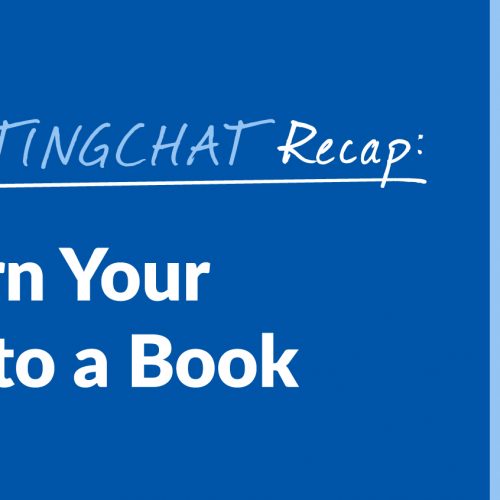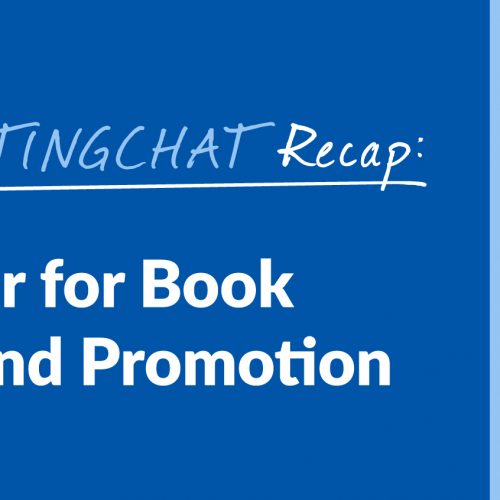#ContentWritingChat Recap: How to Turn Your Content Into a Book with Leah Ingram
Have you ever thought about turning your content into a book? If so, you might be wondering how to get started with this process! In this week’s #ContentWritingChat, this is exactly what we talked about. We talked about what you need to do first if you want to write a book, the pros and cons of working with a publisher versus self-publishing, and more! If this chat is right up your alley, keep reading for out recap. It’s loaded with all the tips you need. #ContentWritingChat Recap: How to Turn Your Content Into a Book With Leah Ingram Join us Tuesday, October 17th at 10 AM Central for the next #ContentWritingChat with @theleahingram! ?? pic.twitter.com/v6fi8pKleC — Express Writers (@ExpWriters) October 10, 2017 Our guest host this week was Leah Ingram. Leah is a regular #ContentWritingChat participant, so we were thrilled to have her guest hosting. As a writer, she had a lot of amazing tips to help you create a book of your very own. Q1: Why would you want to turn your content into a book? Whether you’ve already been thinking about writing a book or you’re not convinced it’s worthwhile, this first question is for you. We asked everyone to share why they felt writing a book could be beneficial. Check out some of the responses: A1: A great reason to turn your content into a book is to build your platform as an expert. #ContentWritingChat It’s why I did w/ mine! — Writer Leah Ingram (@theleahingram) October 17, 2017 Leah feels writing a book is a great way to build your platform as an expert within your niche. A1. You can gain access to a new #audience through a new medium. Plus, books don’t get lost on a timeline. #ContentWritingChat — SourceMedia (@SourceMediaCo) October 17, 2017 Writing a book allows you to reach a new audience through a different medium, which is always a plus. A1 A published book gives you instantaneous niche authority. Well worth the trouble. (Speaking from experience) #ContentWritingChat — Julia McCoy ? (@JuliaEMcCoy) October 17, 2017 A1 Example of ROI: I landed a paid speaking gig organically through a publication finding my book + multiple clients. #ContentWritingChat — Julia McCoy ? (@JuliaEMcCoy) October 17, 2017 Julia said publishing a book instantly gives you authority in your niche. She was able to land a paid speaking gig and even secure new clients from publishing her own book. A1: I turned my blog into book to answer all of the questions people asked me in one place. #ContentWritingChat https://t.co/zskozEGLl8 — Carlarjenkins (@carlarjenkins) October 17, 2017 For Carla, she felt a book was a beneficial way to answer all the questions she was commonly asked. A1: It’s a great way to put all of your ideas in one place, rather than spread across different blog posts. #ContentWritingChat — Leads To You (@LeadsToYou) October 17, 2017 A book is a great way to put everything into one place, which makes it easier for your audience to consume. A1. Portability! Easier to read content in book format than in diff blog posts. Seth Godin has made a career off it! 😉 #ContentWritingChat — Ken Hart (@KenHartWriter) October 17, 2017 As Ken said, portability is another benefit of writing a book. With all of your best content in one place, it’s easy for your audience to read and take with them wherever they go. Q2: How do you know that your content is something your audience will be interested in? Before you get started with a book, you want to make sure the topic you choose is something your audience will value. If they aren’t interested, they won’t buy! Here’s how you can make sure your book will be a hit with your target audience: A2: If you’re getting lots of comments or good traffic for certain types of blog posts/content, you’ve got a winner. #ContentWritingChat — Writer Leah Ingram (@theleahingram) October 17, 2017 If you’re receiving a lot of comments or traffic on certain types of content, Leah said that’s a good sign you’ve got a winner. This is a great way to get started when turning your content into a book. A2: When you listen to your audience and use what they’re saying as a guide to your content, you’re on the right track! #ContentWritingChat — Flying Cork (@flyingcorkpgh) October 17, 2017 Make sure you’re listening to your audience. Take their feedback into consideration and allow it to guide your content. A2: Research what they’re responding to/sharing/commenting on/etc. already. Know thy audience so you can cater to them.#ContentWritingChat https://t.co/vPNxJsVEmD — ThinkSEM (@ThinkSEM) October 17, 2017 Sarah’s advice is to research what your audience is responding to and sharing. This gives you a good idea of what their interests are so you can create the content that resonates. A2: I do surveys, ask questions, check the comments and Google Analytics. That’s how I learn my audience’s interest. #ContentWritingChat https://t.co/OcE4ZCRSFJ — Carlarjenkins (@carlarjenkins) October 17, 2017 If you aren’t sure what your audience truly wants, there are a few great options for you. Carla suggests doing surveys, asking questions, checking blog comments, and even viewing your Google Analytics. Discover what’s been a hit with your audience and go from there. A2. If you’re repurposing blog content, you already have a good barometer of interest: social media sharing & comments. #ContentWritingChat — Ken Hart (@KenHartWriter) October 17, 2017 If you’re going to be repurposing some of your blog content as a book, that’s already going to be a good indicator of your audience’s interest. Were people sharing those posts or leaving comments? Those are signs that they liked what you were sharing. A2: Don’t be afraid to ASK your audience what they’d like to see from you. They’ll tell you what they think. #ContentWritingChat — Rachel (@redheadrachel) October 17, 2017 Never be afraid to just ask your audience what they want. If you have an idea, present it to them to get their feedback. Q3: What comes first — … Read more

